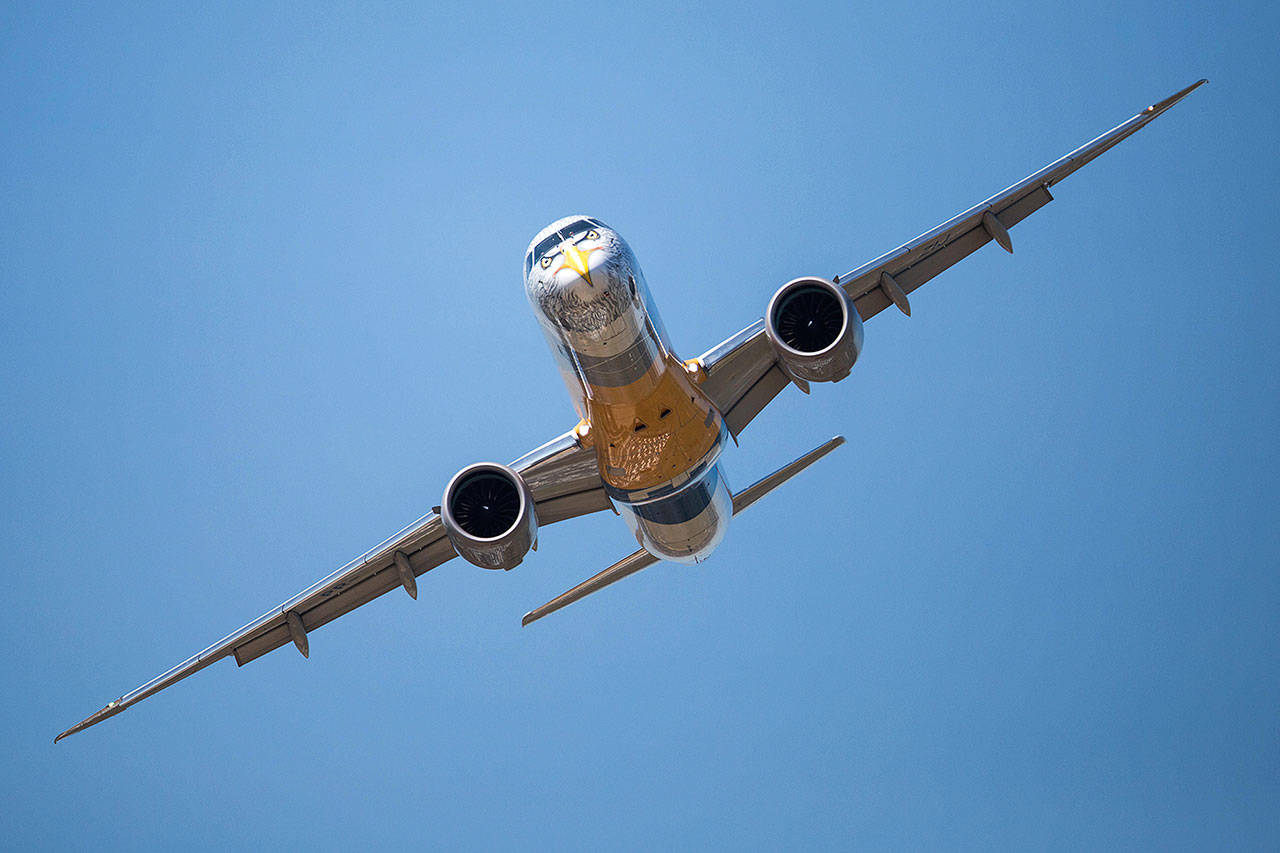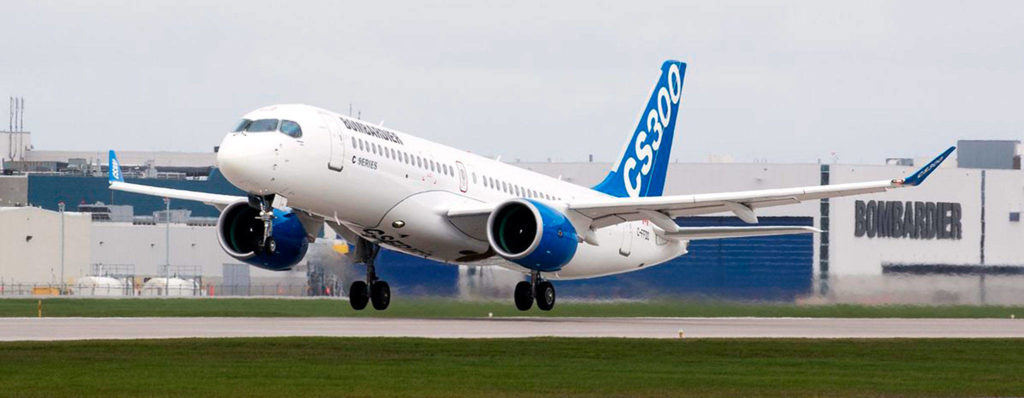By Dominic Gates / The Seattle Times
SEATTLE — The revelation last month that Boeing was in talks to acquire control of Brazilian airplane manufacturer Embraer may have seemed like a bolt from the blue, but the U.S. company has quietly explored such a deal twice before.
The previous efforts indicate Boeing’s strategic interest includes the acquisition of engineering talent to work on its next new jet.
According to people involved with the history, Boeing took serious looks alternately at Embraer and at its Canadian rival, Bombardier, over the past 18 years.
In May 1999, then-Boeing Commercial Airplanes chief executive Alan Mulally commissioned the first study of the possibility of buying Embraer.
There was even a family connection: Daniel Da Silva, now a senior executive at Boeing Capital Corporation, the jetmaker’s airplane financing unit, was a principal in that Boeing study. His father, Ozilio da Silva, was one of Embraer’s founders, its first chief operating officer and later the jetmaker’s chief executive, though he left the company in 1991.
An executive familiar with Boeing’s approaches to Embraer over the years, who asked to remain anonymous because he spoke without company authorization, said the impetus for the approach then was to bolster the future of the jet Boeing inherited from McDonnell Douglas, the Long Beach-built 717.
Embraer was developing its 70- and 90-seat E-jets and the idea was to encourage it to engineer as much commonality as possible with the 106- to 117- seat 717, creating a family of airplanes for the otherwise orphan 717 jet.
Not another de Havilland
The study’s conclusion was very positive and Mulally was set to move ahead.
However, Harry Stonecipher, then president of Boeing, nixed the move, according to three people with knowledge of what happened.
Apparently judging that Canada offered less risk than Brazil, Stonecipher instead switched targets and launched an effort to buy Bombardier’s aerospace division.
Commercial Airplanes executive Gary Scott and then-Boeing chief financial officer Deborah Hopkins were the leads in that push. The two shuttled back and forth to Montreal for detailed talks with the Beaudoin family, which controlled Bombardier.
One issue was wariness among top Boeing executives who remembered the disastrous mid-1980s purchase of de Havilland Canada, which made various seaplanes and also the Dash 8 turboprop flown today as the Q400 by regional airlines including Seattle-based Horizon Air.
On the de Havilland deal, Boeing “lost a million dollars a day every day for three straight years,” said Joe Ozimek, a retired executive who held senior positions both in Boeing Commercial Airplanes and Boeing Capital Corporation.
Boeing cut its losses and sold de Havilland to Bombardier in 1992.
In the end, the effort at buying Bombardier seven years later foundered when the Beaudoin family demanded a price Boeing deemed too high.
“Boeing could have been interested in buying all of Bombardier’s aerospace unit, but not at the price they were asking,” said Scott, now retired, in an interview.
Boeing discontinued production of the orphan 717 in 2006.
Acquisition blocked
Meanwhile, Scott had left Boeing in 2002 and moved to Canada. A couple years later, he joined Bombardier as head of its new commercial airplane program and launched the CSeries jet — the first new aircraft by a regional jetmaker intruding upon Boeing’s slice of the sky.
In 2005, Scott visited Mulally and suggested that Boeing could collaborate on the CSeries.
Boeing set up another internal study, this time tasked with assessing which regional jetmaker would make the best partner.
By then, Stonecipher was long gone. When Embraer came out way ahead, Mulally rebuffed Scott and Boeing pushed to structure a deal with the Brazilians.
Ozimek said Boeing’s main interest was in Embraer’s engineering talent.
It also wanted to ensure as much cockpit commonality as was practical, to make it easy for pilots to migrate from Embraer to Boeing aircraft.
Acquiring Embraer would forestall it building a 737 competitor as well as address the competitive threat from Bombardier’s CSeries.
But the company hit a barrier: The Brazilian government wanted to retain control of this crown jewel of the country’s manufacturing, and especially to protect Embraer’s military aircraft division.
In the end, that blocked an acquisition, though discussions on potential collaboration continued.
The executive familiar with the various approaches to Embraer said that when Boeing was vacillating between going ahead with a revamped 737 featuring new engines — the 737 MAX — versus developing an all-new small airplane to replace the 737, there was discussion inside the company as to whether to involve Embraer in the latter project.
But when Airbus in 2011 launched the A320neo with new engines, that precipitated Boeing’s decision to ditch the new small airplane in favor of the MAX.
Later, in 2012, Boeing and Embraer instead settled for an agreement to engage in broad collaboration.
The two agreed, for example, to maintain basic cockpit similarities, using steering columns to pilot their jets rather than an Airbus-style side-stick.
That collaboration has continued since then. In 2016, Boeing agreed to jointly market Embraer’s KC-390, a military airlift and aerial refueling aircraft.
Not another 787
Airbus’s move in October to acquire the CSeries program was almost certainly the catalyst for Boeing to resume its effort to buy all or part of Embraer.
If closed, an acquisition could bring Embraer’s engineering resources to bear on Boeing’s next all-new jet development program, the 797, whether that’s the potential New Mid-market Airplane that Boeing is currently pitching to airlines or a 737 replacement.
Yet according to reports, Boeing faces the same stumbling block now that it did in the mid-2000s.
The U.S. jetmaker is trying to offer assurances to the Brazilian government while holding out for full control of at least the commercial airplane side of Embraer.
The harsh lessons of the 787 Dreamliner program probably factor into Boeing’s position in those talks.
On the 787, Boeing partnered with major suppliers in Italy, Japan and the U.S., handing them engineering work and depending on them both to deliver their parts and over time to reduce the cost of those parts.
But those partners weren’t up to the production task, resulting in unprecedented delays and billions of dollars in cost overruns. And they preferred to reap the benefits of any gradual cost savings themselves, rather than passing them on to Boeing.
The result was a financial nightmare. Boeing was forced to buy out the partner plants in South Carolina. It will probably never recover all of its 787 investment.
“That was a solid lesson learned,” said Ozimek.
To avoid a repeat of that debacle, he said, Boeing is unlikely to be interested in having Embraer engineers help develop a new Boeing plane. They’d have to be Boeing engineers.
“That’s why Boeing wants to control Embraer,” Ozimek said. “It wants to own them, not to have a partnership.”
Talk to us
> Give us your news tips.
> Send us a letter to the editor.
> More Herald contact information.


























